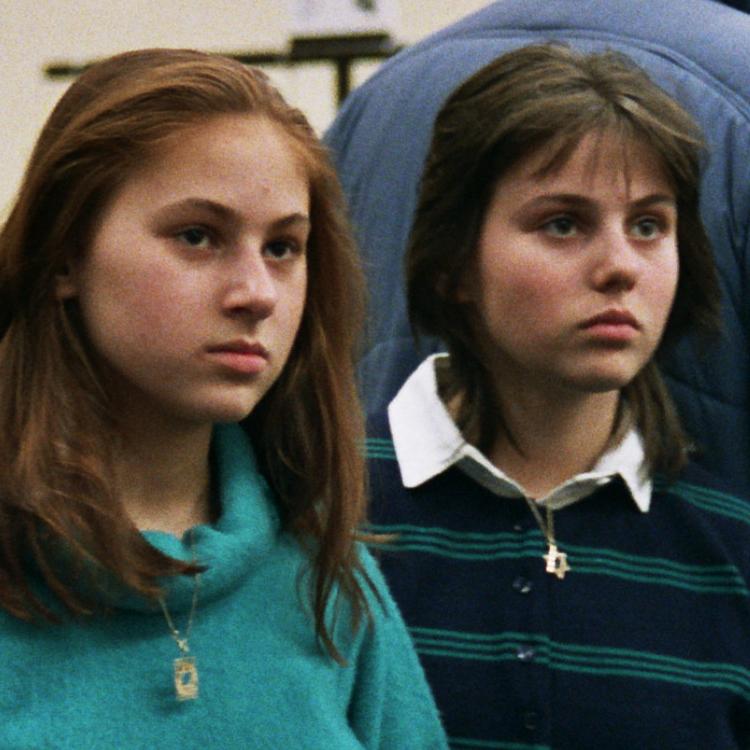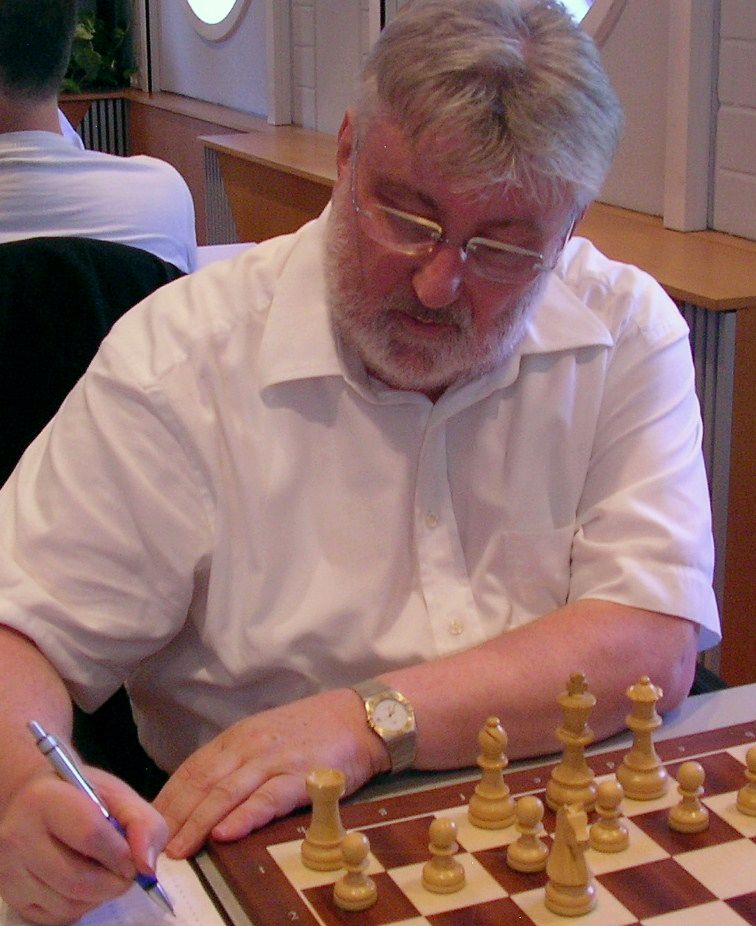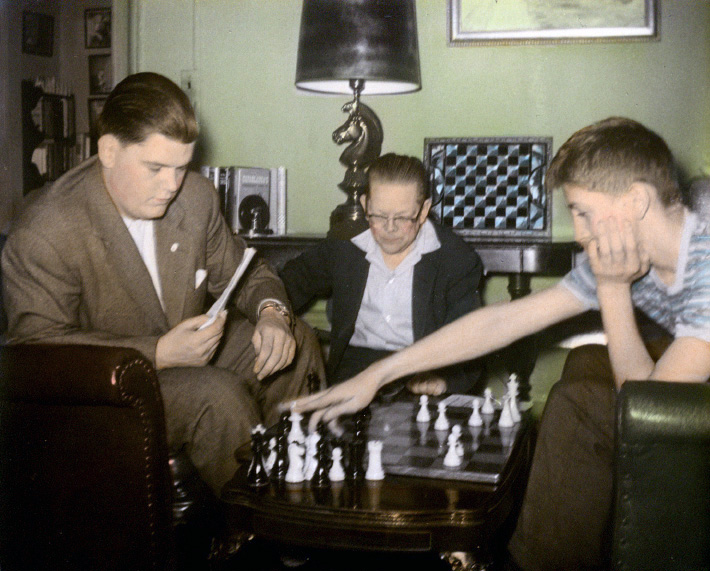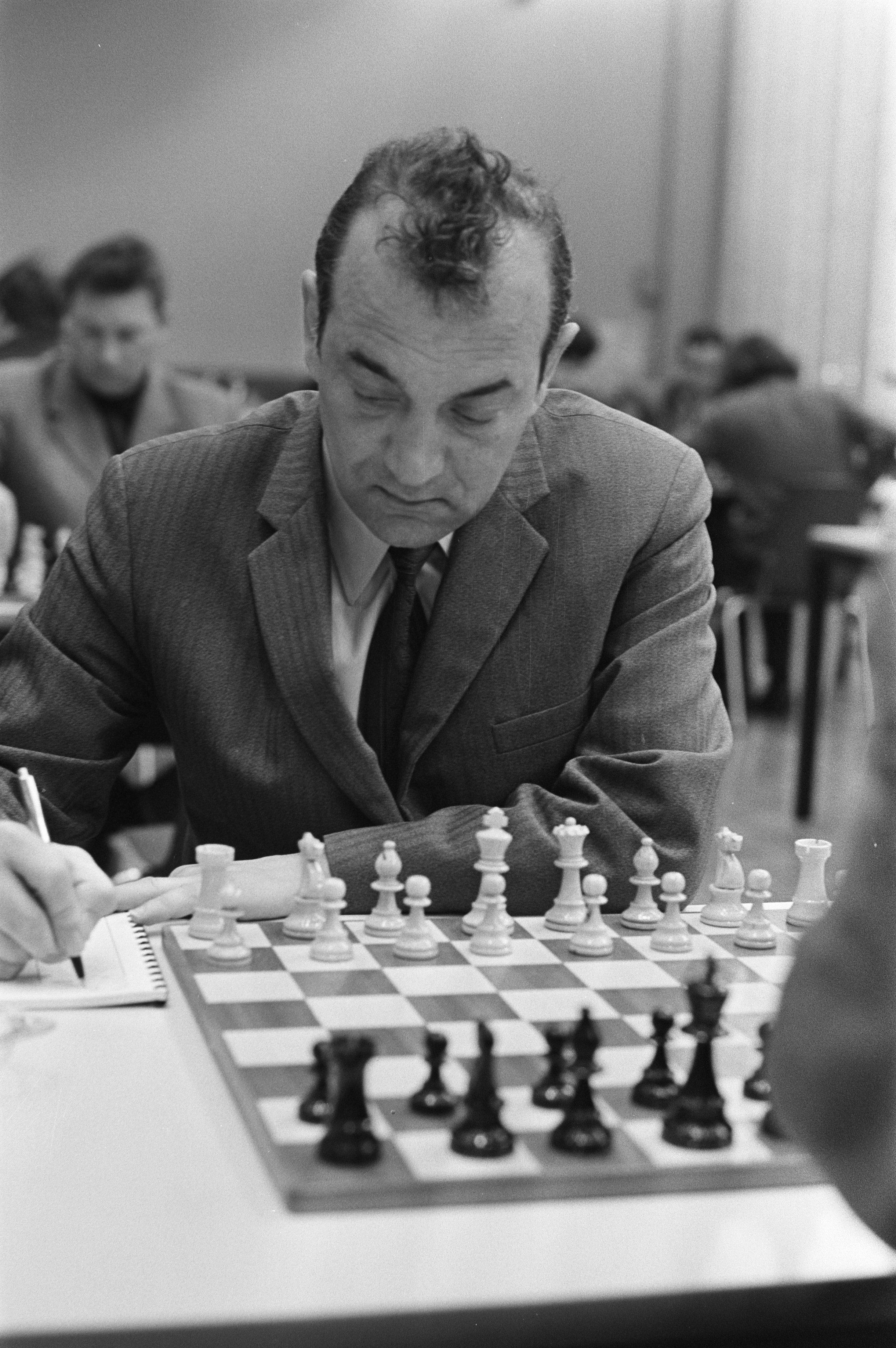|
Sofia Polgár
Sofia Polgar ( hu, Polgár Zsófia, ); born November 2, 1974) is a Hungarian and Israeli chess player, teacher, and artist. She holds the FIDE titles of International Master and Woman Grandmaster. A former chess prodigy, she is the middle sister of two Grandmasters, Susan and Judit. She has played for Hungary in four Chess Olympiads, winning two team gold medals, one team silver, three individual golds, and one individual bronze. Biography Polgar was born into a Jewish family in Budapest. She and her two sisters were part of an educational experiment carried out by their father László Polgár, in an attempt to prove that children could make exceptional achievements if trained in specialist subjects from a very early age—László's thesis being that "geniuses are made, not born". He and his wife Klara educated their three daughters at home, with chess as the specialist subject. They also taught their daughters the international language Esperanto. In the 1986 World under- ... [...More Info...] [...Related Items...] OR: [Wikipedia] [Google] [Baidu] |
Budapest
Budapest (, ; ) is the capital and most populous city of Hungary. It is the ninth-largest city in the European Union by population within city limits and the second-largest city on the Danube river; the city has an estimated population of 1,752,286 over a land area of about . Budapest, which is both a city and county, forms the centre of the Budapest metropolitan area, which has an area of and a population of 3,303,786; it is a primate city, constituting 33% of the population of Hungary. The history of Budapest began when an early Celtic settlement transformed into the Roman town of Aquincum, the capital of Lower Pannonia. The Hungarians arrived in the territory in the late 9th century, but the area was pillaged by the Mongols in 1241–42. Re-established Buda became one of the centres of Renaissance humanist culture by the 15th century. The Battle of Mohács, in 1526, was followed by nearly 150 years of Ottoman rule. After the reconquest of Buda in 1686, the ... [...More Info...] [...Related Items...] OR: [Wikipedia] [Google] [Baidu] |
Yona Kosashvili
Yona Kosashvili ( he, יונה קוסאשווילי; July 3, 1970) is an Israeli chess Grandmaster and surgeon. Personal life Yona Kosashvili was born in Tbilisi, Georgia. He is a graduate of Tel Aviv University in Medicine, as part of the academic reserve Atuda. At the 1990 Israeli Chess Championship, he finished in third place. In 1993, at the age of 23, he received a GM title in chess. Kosashvili previously managed the orthopedic department at Kaplan Medical Center, and currently heads the orthopedic department at Beilinson Hospital. Kosashvili has published about 100 research papers in the field of orthopedics. In 1999 he married Sofia Polgar. They are the parents of two children. Kosashvili lived with his family for about 3 years in Toronto, Canada, where he worked as an orthopedic surgeon. He currently lives with his family in Ganei Tikva Ganei Tikva ( he, גַּנֵּי תִּקְוָה, lit="gardens of hope") is a town in Israel bordering Kiryat Ono to the west, ... [...More Info...] [...Related Items...] OR: [Wikipedia] [Google] [Baidu] |
Fischer Random Chess
Fischer random chess, also known as Chess960 (often read in this context as 'chess nine-sixty' instead of 'chess nine hundred sixty'), is a variation of the game of chess invented by the former world chess champion Bobby Fischer. Fischer announced this variation on June 19, 1996, in Buenos Aires, Argentina. Fischer random chess employs the same board and pieces as classical chess, but the starting position of the pieces on the players' is randomized, following certain rules. The random setup makes gaining an advantage through the memorization of openings impracticable; players instead must rely more on their skill and creativity . Randomizing the main pieces had long been known as shuffle chess, but Fischer random chess introduces new rules for the initial random setup, "preserving the dynamic nature of the game by retaining for each player and the right to castle for both sides". The result is 960 unique possible starting positions. In 2008, FIDE added Chess960 to an app ... [...More Info...] [...Related Items...] OR: [Wikipedia] [Google] [Baidu] |
Bobby Fischer
Robert James Fischer (March 9, 1943January 17, 2008) was an American chess grandmaster and the eleventh World Chess Champion. A chess prodigy, he won his first of a record eight US Championships at the age of 14. In 1964, he won with an 11–0 score, the only perfect score in the history of the tournament. Qualifying for the 1972 World Championship, Fischer swept matches with Mark Taimanov and Bent Larsen by 6–0 scores. After another qualifying match against Tigran Petrosian, Fischer won the title match against Boris Spassky of the USSR, in Reykjavík, Iceland. Publicized as a Cold War confrontation between the US and USSR, the match attracted more worldwide interest than any chess championship before or since. In 1975, Fischer refused to defend his title when an agreement could not be reached with FIDE, chess's international governing body, over the match conditions. Consequently, the Soviet challenger Anatoly Karpov was named World Champion by default. Fischer subseq ... [...More Info...] [...Related Items...] OR: [Wikipedia] [Google] [Baidu] |
Fast Chess
Fast chess, also known as Speed chess, is a type of chess in which each player is given less time to consider their moves than normal tournament time controls allow. Fast chess is subdivided, by decreasing time controls, into rapid chess, blitz chess, and bullet chess. Armageddon chess is a particular variation of fast chess in which different rules apply for each of the two players. The top ranked 2021 world rapid chess player is Magnus Carlsen from Norway, who is also the top ranked classical chess player. The top ranked blitz chess player at the beginning of 2022 is Hikaru Nakamura. The top ranked 2021 women's rapid and blitz chess player is Hou Yifan from China, who is also the top ranked women's classical chess player. FIDE rules The World Chess Federation (FIDE) divides time controls for chess into "classical" time controls, and the fast chess time controls. , for master-level players (with an Elo of 2200 or higher) the regulations state that at least 120 minutes per ... [...More Info...] [...Related Items...] OR: [Wikipedia] [Google] [Baidu] |
Viktor Korchnoi
Viktor Lvovich Korchnoi ( rus, Ви́ктор Льво́вич Корчно́й, p=vʲiktər lʲvovʲɪtɕ kɐrtɕˈnoj; 23 March 1931 – 6 June 2016) was a Soviet (before 1976) and Swiss (after 1980) chess grandmaster (GM) and chess writer. He is considered one of the strongest players never to have become World Chess Champion. Born in Leningrad, Soviet Union (USSR), Korchnoi defected to the Netherlands in 1976, and resided in Switzerland from 1978, becoming a Swiss citizen. Korchnoi played four matches, three of which were official, against GM Anatoly Karpov. In 1974, Korchnoi lost the Candidates Tournament final to Karpov. Karpov was declared World Champion in 1975 when GM Bobby Fischer declined to defend his title. Korchnoi then won two consecutive Candidates cycles to qualify for World Chess Championship matches with Karpov in 1978 and 1981 but lost both. The two players also played a drawn training match of six games in 1971. Korchnoi was a candidate for the World Champio ... [...More Info...] [...Related Items...] OR: [Wikipedia] [Google] [Baidu] |
FIDE
The International Chess Federation or World Chess Federation, commonly referred to by its French acronym FIDE ( Fédération Internationale des Échecs), is an international organization based in Switzerland that connects the various national chess federations and acts as the governing body of international chess competition. FIDE was founded in Paris, France, on July 20, 1924.World Chess Federation FIDE (April 8, 2009). Retrieved on 2013-07-28. Its motto is ''Gens una sumus'', Latin for "We are one Family". In 1999, FIDE was recognized by the (IOC). As of May 2022, there are 200 [...More Info...] [...Related Items...] OR: [Wikipedia] [Google] [Baidu] |
1996 Chess Olympiad
The 32nd Chess Olympiad ( hy, 32-րդ Շախմատային օլիմպիադա, ''32-rd Shakhmatayin olimpiadan''), organized by FIDE and comprising an openAlthough commonly referred to as the ''men's division'', this section is open to both male and female players. and a women's tournament, took place between September 15 and October 2, 1996, in Yerevan, Armenia. Both tournament sections were officiated by international arbiter Alesha Khachatrian of Armenia. The Russian team won their third consecutive title, captained by PCA world champion Kasparov. Once again, due to a dispute with the national federation, FIDE champion Anatoly Karpov was not present. Ukraine, led by Ivanchuk, took the silver, and the United States returned to the medal ranks for the first time since the fall of the Iron Curtain, beating England by half a point on tie break—somewhat ironically, half of the US team were born in Eastern Europe. In addition to the overall medal winners, the teams were divi ... [...More Info...] [...Related Items...] OR: [Wikipedia] [Google] [Baidu] |
1994 Chess Olympiad
The 31st Chess Olympiad (russian: 31-я Шахматная олимпиада, ''31-ya Shakhmatnaya olimpiada''), organized by FIDE and comprising an openAlthough commonly referred to as the ''men's division'', this section is open to both male and female players. and a women's tournament, took place between November 30 and December 17, 1994, in Moscow, Russia. Both tournament sections were officiated by international arbiter Yuri Averbakh of Russia. The record number of nations once again counted some old faces playing under new flags. Yugoslavia was back, but now represented by the federation of Serbia-Montenegro. Another former Yugoslav republic, Macedonia, also made its debut, as did the Czech Republic and Slovakia who competed individually for the first time. Finally, the International Braille Chess Association entered two truly international teams. The Russian team retained their title, captained by PCA world champion Kasparov. Due to a dispute with the national federation ... [...More Info...] [...Related Items...] OR: [Wikipedia] [Google] [Baidu] |
1990 Chess Olympiad
The 29th Chess Olympiad ( sr, 29. Шаховска олимпијада, ''29. Šahovska olimpijada''), organized by Fédération Internationale des Échecs, FIDE and comprising an openAlthough commonly referred to as the ''men's division'', this section is open to both male and female players. and a women's tournament, as well as several other events designed to promote the game of chess, took place between November 16 and December 4, 1990, in Novi Sad, Yugoslavia (present-day Serbia). This time around, the political controversy surrounded the Baltic states – Estonia, Latvia, and Lithuania – who had all recently declared their independence from the Soviet Union and wanted to send their own teams to the Olympiad. The Yugoslavian hosts, however, followed the decree from Moscow and refused to accept their entries. Despite a petition from several top players they weren't allowed to play. This meant that big names like Jaan Ehlvest, Lembit Oll, Alexei Shirov, and former world champ ... [...More Info...] [...Related Items...] OR: [Wikipedia] [Google] [Baidu] |
1988 Chess Olympiad
The 28th Chess Olympiad ( el, Η 28η Σκακιστική Ολυμπιάδα, ''I 28i Skakistikí Olympiáda''), organized by FIDE and comprising an openAlthough commonly referred to as the ''men's division'', this section is open to both male and female players. and a women's tournament, as well as several other events designed to promote the game of chess, took place between November 12 and November 30, 1988, in Thessaloniki, Greece. After the successful 26th Olympiad in Thessaloniki in 1984, FIDE had agreed to hold every other Olympiad (the ones in Olympic years) in the home country of the Olympic movement - provided the Greek Chess Federation and government could provide the necessary funding. This was only the case once, in 1986; after that the Olympiad went back to a new host city every two years. Israel was back, having been effectively banned from the previous Olympiad in Dubai, as were the countries that had stayed away in sympathy: The Netherlands, Denmark, Sweden, and ... [...More Info...] [...Related Items...] OR: [Wikipedia] [Google] [Baidu] |







